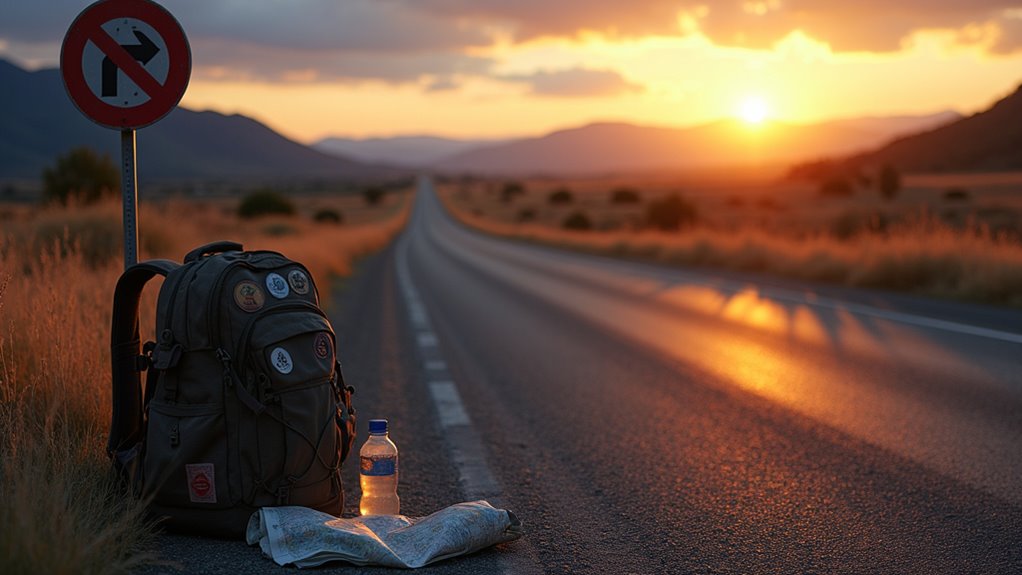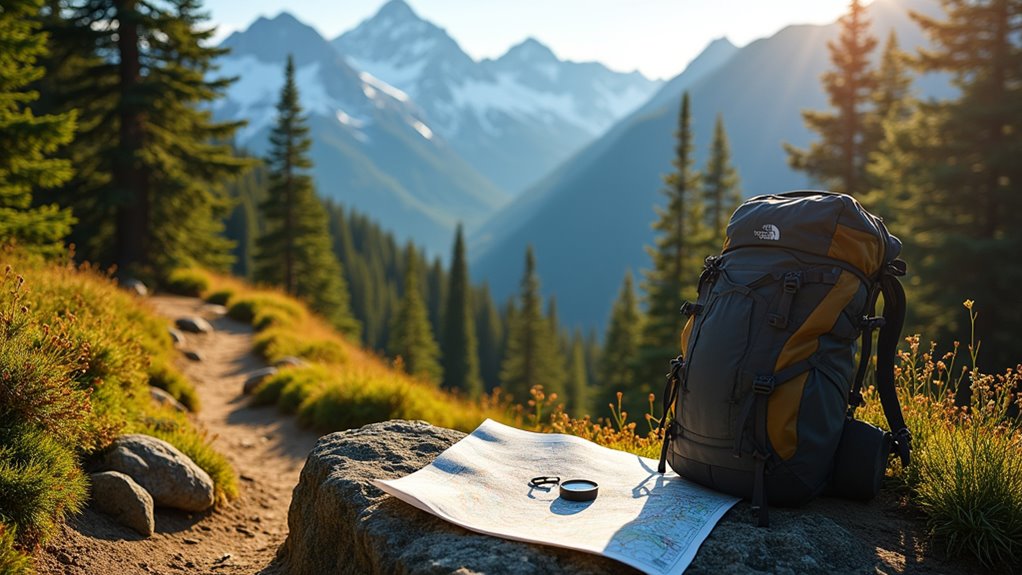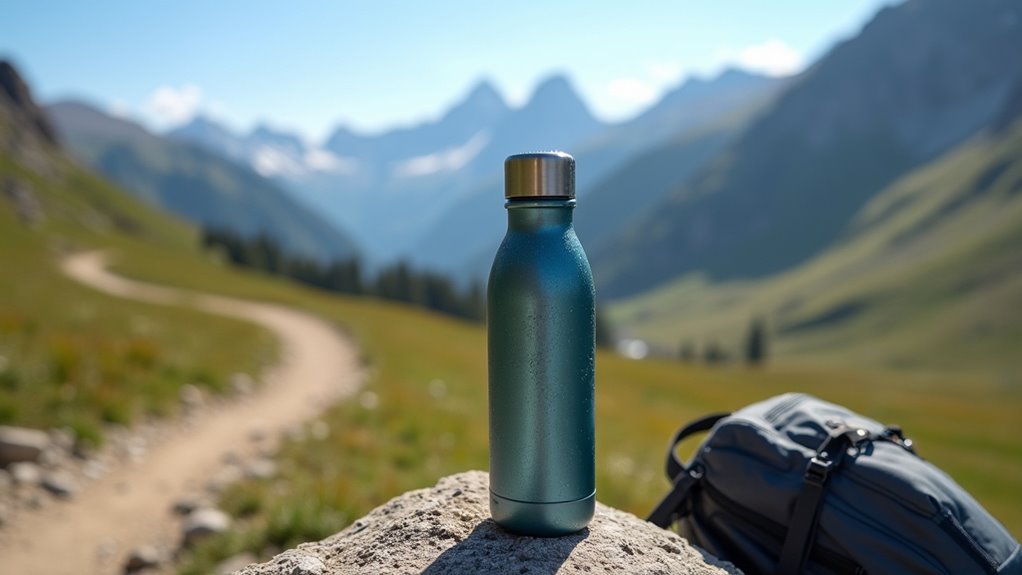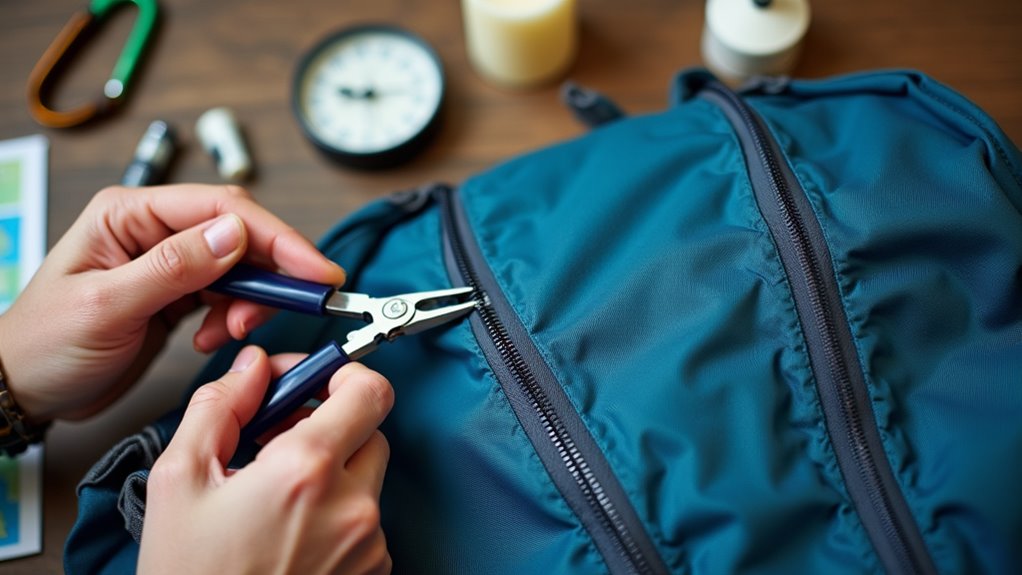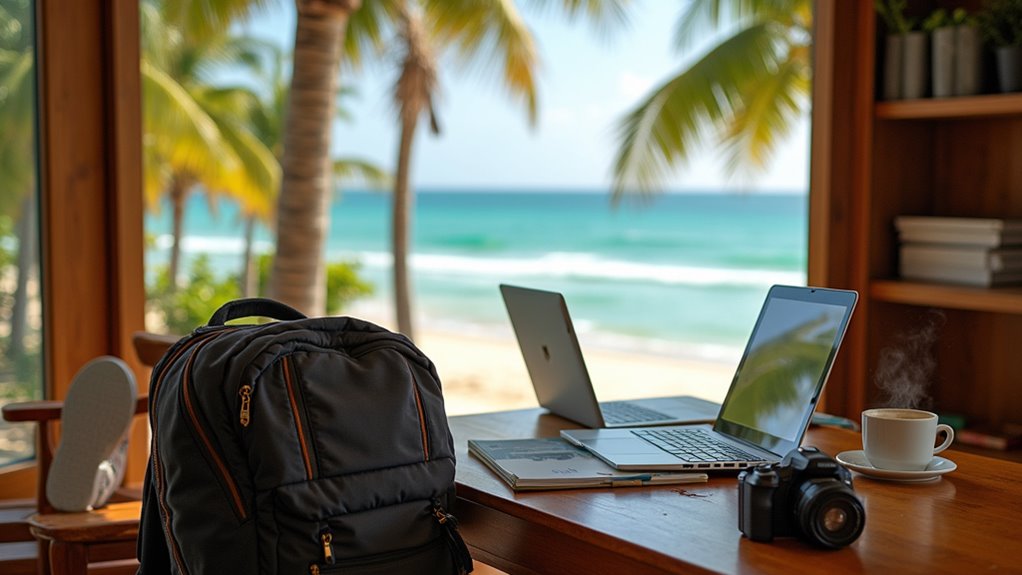Hitchhiking as a backpacker exposes you to real risks, including potential crimes often occurring within the first few miles, and legal problems if hitchhiking is prohibited in some countries. Most people report positive experiences, but dangerous individuals can seem trustworthy, making it hard to assess risk. Laws and cultural attitudes vary by location, so understanding local regulations is essential. Taking safety precautions, like hitchhiking during daylight and staying alert, can reduce danger. There’s more you should know for a safer journey.
Although hitchhiking has long attracted budget-conscious backpackers seeking adventure and affordable travel, it presents a complex set of considerations that go beyond saving money. When you choose to hitchhike, you expose yourself to a range of safety risks, including physical danger and the possibility of injury. Crimes involving hitchhikers most often occur in the early stages of the journey, frequently within the first few miles. Your safety depends heavily on your ability to accurately evaluate and trust drivers, which isn’t always straightforward.
Being aware of local laws is important, as hitchhiking is illegal in many countries, and legal violations can carry consequences such as fines or imprisonment.
Reliable statistics on hitchhiking safety are limited, but documented risks remain significant. While most rides reported by hitchhiking communities are positive, there’s still a minority that describes their experiences as very bad. The likelihood of encountering dangerous or inappropriate situations can be reduced if you exercise caution, stay alert, avoid hitchhiking at night, and keep a charged phone with you. According to interstate highway crime statistics, your chance of being raped or killed while hitchhiking on an interstate is extremely low, with a 0.0000089% probability based on historical data. It is important to remember that dangerous individuals can look normal, making it difficult to predict who might pose a risk.
Most hitchhiking experiences are positive, but significant risks remain—staying alert and cautious is essential for your safety.
Comparative data even suggests that other dangers, like drowning, are statistically more common than hitchhiking-related incidents, but the unpredictable nature of hitchhiking means you can’t ignore the real risks.
Legal considerations vary greatly depending on location. In some countries, strict regulations against hitchhiking exist, so understanding these rules is essential for safe travel. In places where hitchhiking is restricted, you may find public transportation, private vehicles, registered minivans, or rideshare services more accessible and safer.
These alternatives, such as trains, subways, or car rentals, offer greater control over your safety and often remain affordable for backpackers.
Cultural and environmental factors further influence hitchhiking safety. Attitudes toward hitchhiking, local customs, and even weather conditions can change how drivers view you and affect your experience.
